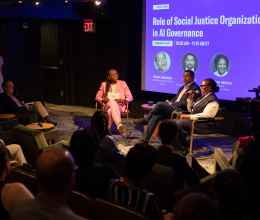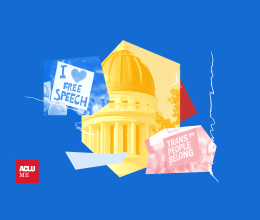Yesterday marked the 50th anniversary of the March on Washington for Jobs and Freedom and Reverend Dr. Martin Luther King, Jr.’s famous “I Have a Dream” speech.
It was a day of celebration, but also a day of reflection. It was time for us to as a nation reflect on Dr. King’s message, the goals of the civil rights movement and what, half a century after Dr. King’s speech, are the new challenges to racial equality in America.
President Obama was joined by members of the King family, former President’s Carter and Clinton, and hundreds of thousands who flocked to Washington or tuned in to listen. And he reminded us:
“But we would dishonor those heroes as well to suggest that the work of this nation is somehow complete. The arc of the moral universe may bend towards justice, but it doesn't bend on its own. To secure the gains this country has made requires constant vigilance, not complacency. Whether it's by challenging those who erect new barriers to the vote or ensuring that the scales of justice work equally for all in the criminal justice system and not simply a pipeline from underfunded schools to overcrowded jails it requires vigilance.”
For a full text of the speech click here.
Obama’s message to the nation was one of “unfinished business,” emphasizing the obstacles that need to be overcome for Dr. King’s message and the goals of the civil rights movement to come to fruition. While we should hail the progress that has been made over the past fifty years, new challenges - such as that of mass incarceration – have created new barriers to racial justice in America. While “separate but equal” may seem to be behind us, segregated schools have given way to school to prison pipelines, in which young men of color are delivered directly from underfunded schools into prisons. In America today, one in three black men expect to see the inside of the criminal justice system in his lifetime. Contact with corrections has far-reaching implication for that person’s ability to find good employment, obtain housing and pursue higher education. Beyond the impact of mass incarceration to the individual, the cost to communities is immeasurable. Too many children growing up without a parent, too many parents are watching their children spend their adult lives behind bars.
In an ideal world the scales of justice would work equally for all people regardless of race. However, our current system is broken. With nearly 1 million African American’s currently behind bars and countless others under other forms of correctional control, it is no longer possible to ignore the devastating consequences of our current criminal justice system. Though much in America has changed since Dr. King gave his historic speech, much still remains to accomplished on our nations long road to racial justice.








